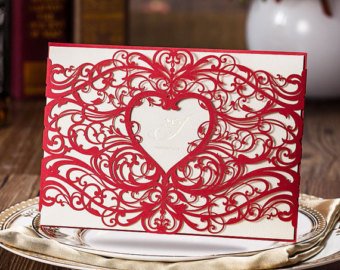Dr Who-We Are
Ceremony & Dinner
Sep 19
2015
Wedding Tea Ceremony
Sep 19
2015
Southwood Estate
Zen Garden
United States
Group Photo
Sep 19
2015
After Party
Sep 19
2015
Sunday Brunch
Sep 20
2015
Events are private
Please Log inAll guests are welcome to participate in the wedding tea ceremony reception line in the Zen Garden.
The Newlyweds will guide everyone through the customs involved.
In lieu of having a traditional western card box, we invite guests to deliver their wedding cards during the tea ceremony.
1. Couple serves tea to guests
2. Couple says "Please drink tea (yum cha)"
3. Guests sips tea
4. Guests place tea cup on tray
5. Guests place wedding envelope on tray
Depending on how much you would like to participate in the tradition
*Outer envelopes are customarily red colored*
*Do not feel obligated to include gift offering*
*Your well wishes are what's most important*
Zero
The Number 0 (零 líng) is a whole number and it is also an even number for the money ends with 0.
Two
The number 2 (二 èr) is most often considered a good number in Chinese culture. There is a Chinese saying: "good things come in pairs".
Three
The number 3 (三 saam) sounds similar to the character for "birth" (生 saang), and is considered a lucky number.
Seven
The number 7 (七 chut) symbolizes "togetherness". It is a lucky number for relationships. It is also recognized as the luckiest number in the West, and is one of the rare numbers that is great in both Chinese and many Western cultures. It is a lucky number in Chinese culture, because it sounds alike to the Chinese word 起 (Pinyin: qǐ) in Mandarin meaning arise, and also 气 (Pinyin: qì) meaning life essence. In Cantonese it sounds like the verb "to leave" which adds emphasis. For example, three and seven together in Cantonese emphasizes that you not only are able to grow, but you can also grow out of any situation you might be trying to have. It is for this reason it is auspicious. If it was combined with the numbers 4 and 5, i.e. 457, this would be extremely inauspicious as it would translate literally to "Death does not allow you to leave" or interpreted "Even in death you cannot escape."
Eight
The word for 8 (八 bā) sounds similar to the word which means "prosper" or "wealth" (發 – often paired with "發財" during Chinese New Years, but is used alone or paired with numerous other "compound words" that have a meaning of luck or success). In regional dialects the words for "eight" and "fortune" are also similar, e.g., Cantonese "baat3" and "faat3". Note as well, this particular symbol matches the mathematical symbol of infinity. While Chinese does have other words for luck, this full understanding of luck that includes the infinity concept marries into a Chinese understanding of this particular word.
Nine
The number 9 (九 gau), is a homophone of the word for "long lasting" (久), and as such is often used in weddings. It is also a homophone for the words "to have enough", "to save". Hence, when you put it with other words that are lucky, it emphasizes the benefit of that number 89 (To have enough luck), 29 (to easily have enough), 39 (grow enough). Here the word enough means more "to have that which you need to achieve your goals" vs. "just enough."
Four
Number 4 (四 sì) is considered an unlucky number in Chinese because it is nearly homophonous to the word "death" (sǐ).
Due to that, many numbered product lines skip the "4":
*Nokia cell phones (before the Lumia 640, there is no series containing a 4 in the name)
*Canon PowerShot G's series (after G3 goes G5)
*In East Asia, some buildings do not have a 4th floor or any series of floors with number 4 --- 4, 14, 24, 34 and all 40–49 floors
(Compare with the Western practice of some buildings not having a 13th floor because 13 is considered unlucky.)
Five
Five (五 wǔ) is associated with "not" (wú). If used for the negative connotation it can become good by using it with a negative.
Six
Six in Cantonese which has a similar pronunciation to that of "lok" meaning "to drop, fall, or decline, may form unlucky combinations.





















